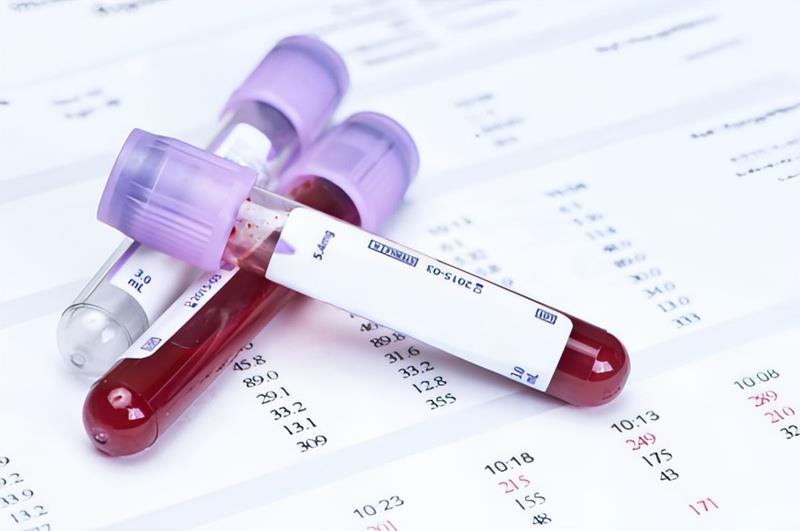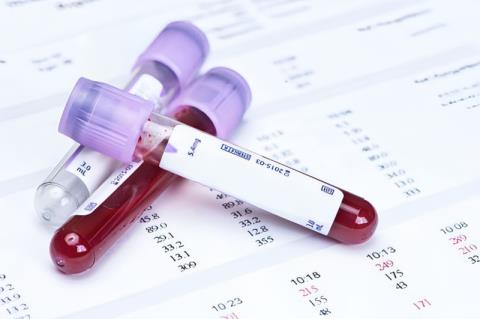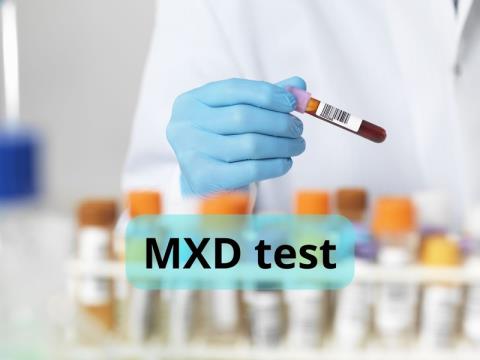White blood cell test is one of the parameters to evaluate blood quality when conducting hematology tests. In particular, NEU is an important indicator of white blood cells that partly reflects human health. So what exactly is the NEU in the blood? Does increasing or decreasing this index have any effect on the body? Let's find out together!
Blood tests are very important in medicine, supporting a comprehensive assessment of the function of organ systems in the body. NEU is one of 18 blood count indicators that are often ordered by doctors as a test in diagnostics and routine medical examinations.
What is a white blood cell test?
White blood cells are an extremely important component of the body that is responsible for strengthening the resistance, fighting against pathogens. Especially diseases of poisoning, bacterial infections, parasitic infections... Before finding the answer to the question "What is the NEU index in the blood?" Find out more about the white blood cell test with SignsSymptomsList drugstore through some of the following information.
White blood cell testing plays an important role in the diagnosis and treatment of diseases
A white blood cell test is a test that checks the number of white blood cells in the blood. Normally, the number of white blood cells in the blood is in the range of 6-9 k/μL (equivalent to about 6-9 thousand white blood cells in 1 microliter of blood). An increase or decrease in white blood cells can be a warning sign of some serious condition or disease. Therefore, performing a white blood cell test plays an extremely important role in the diagnosis and treatment of the disease.
Based on the white blood cell counts, the doctor can make a diagnosis about the patient's health status. In addition to NEU, the white blood cell test also gives other parameters of this blood cell type such as: white blood cell count (WBC), LYM (Lymphocyte) white blood cell test index, and MONO (Monocyte) white blood cell count. ), the eosinophil index (Eosinophil), the polymorphonuclear leukocyte index (BASO) (Basophil), the LUC index (Large Unstained Cells)...
What is the NEU Index?
NEU in the blood stands for Neutrophil - an indicator of the level of neutrophils present in peripheral blood cells. In blood cells, neutrophils are a type of mature cell that plays an essential role in hematopoiesis and immunity to harmful factors. It also destroys and destroys foreign bacteria and viruses that enter the body. In addition, they also have the task of fighting inflammation, treating tissues if there is damage.

The NEU index represents the level of neutrophils present in peripheral blood cells
In a normal person, the NEU index accounts for 37 - 80% and will range from 2.0 - 6.9 G/L. Your health will be greatly affected if this index is outside the upper limit.
To check the NEU number of white blood cells, the following types of tests can be used:
- Complete blood count (CBC) to count neutrophils . Conduct this test three times per week for six consecutive weeks to monitor changes in the NEU index.
- To determine the amount of neutrophils due to autoimmune, an antibody test in the blood can be performed.
- Check bone marrow cells because this is where white blood cells are made.
- Molecular bioassay to examine cell structure.
What causes changes in the NEU index in the blood?
If you find that the NEU reading in your blood changes and is out of the normal range, you need to be aware of the reasons for this increase or decrease. This is also the basis to help doctors diagnose the disease more accurately.
Causes of an increase in the NEU
- Patients with acute infections, acute infections such as: acute appendicitis , pneumonia, abscess ...
- People who have a heart attack or stress...
- Patients with cancer, myeloid leukemia.
- Loss of blood due to surgery or after treatment with corticosteroids.
- After eating or each time of strenuous exercise, the NEU index also increased, but it was not significant and only temporary.

Patients with acute bacterial infection will have an elevated NEU in the blood
What causes the NEU in the blood to decrease?
- People with labor force, poor health condition.
- Myelosuppression, hypoplasia.
- Treatment with chemotherapy, radiation or immunosuppressive drugs.
- Infection, viral infection, malaria , poisoning or heavy metal poisoning.
Things to keep in mind when conducting a NEU blood test
Before taking a blood test for NEU, the patient should pay attention to some of the following issues:
- The NEU test is usually done in the morning.
- To ensure the most accurate test results, about 12 hours before the blood test, the patient must not use stimulants (beer, wine, coffee ...) or drink carbonated drinks.
- Patients should fast before the NEU test.
- Because some drugs can affect the results of white blood cell counts, you need to inform your doctor about any medications you are taking or treating.
- Follow your doctor's instructions throughout the NEU test.
- Monitor the body after testing the NEU index and wait for the final diagnosis conclusion made by the doctor.
Note when conducting NEU test for the most accurate results
In addition to the NEU in the blood, doctors must also rely on other blood count indicators or conduct additional tests. From there, it is possible to make an accurate diagnosis of the patient's medical condition and have the most appropriate and effective treatment regimen for the patient.
As can be seen, the NEU index reflects many health problems of the body. When you receive the test indicators but do not know the condition of the disease, you need to consult a qualified doctor. Avoid situations of confusion, anxiety and panic for yourself due to misunderstanding of the results. If this number is abnormally high or low, you may be ordered to have more tests to determine the cause.











